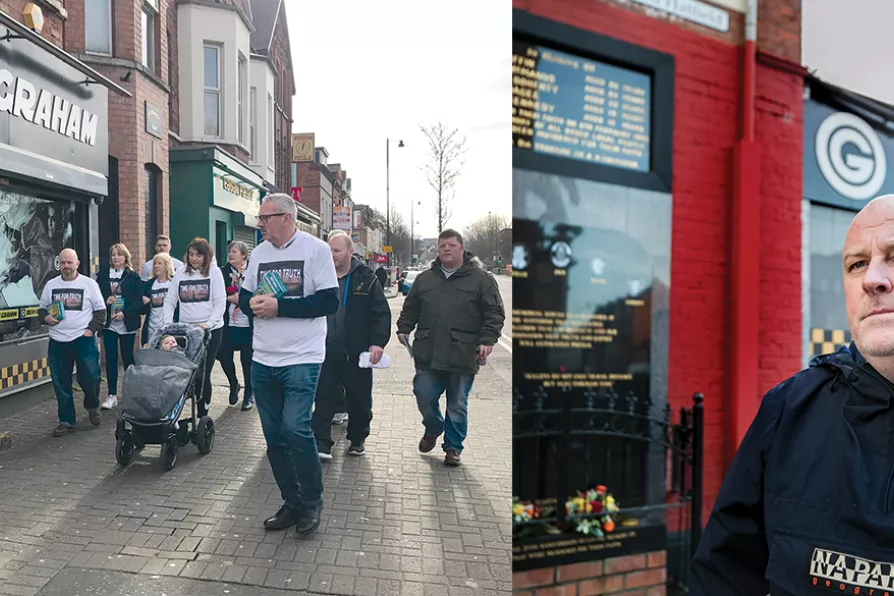This weekend, the NEU holds a special conference to debate changing its approach to organising teaching assistants, which a 2017 TUC agreement forbids. General secretary DANIEL KEBEDE outlines the choices before delegates

 (Left) Time for Truth campaigners outside the Sean Graham bookmaker's on Ormeau Road in Belfast in February 2019 collecting signatures for a petition to implement mechanisms to deal with Northern Ireland's troubled past; (right) Mark Sykes stands at the memorial to those killed during the attack on February 5 1992, he survived after being shot four times his 18-year-old brother-in-law, Peter Magee was killed
(Left) Time for Truth campaigners outside the Sean Graham bookmaker's on Ormeau Road in Belfast in February 2019 collecting signatures for a petition to implement mechanisms to deal with Northern Ireland's troubled past; (right) Mark Sykes stands at the memorial to those killed during the attack on February 5 1992, he survived after being shot four times his 18-year-old brother-in-law, Peter Magee was killed
THE resignation of the Police Service of Northern Ireland (PSNI) Chief Constable Simon Byrne this month was expected. According to the media his term of office as the PSNI’s most senior officer was marked by a series of damaging controversies.
The latest was the result of a judicial review over the suspension of one police officer and the repositioning of another.
A High Court judge said the actions were “unlawful” and quashed the measures — however the suspension of one police officer and the of repositioning of another had been lifted. In addition, the court said the chief constable “bent to political pressure” in the process.

Why not pay a visit to Feile an Phobail, a people’s festival of community arts with roots in the days of internment without trial, and where the spirit of solidarity remains undimmed, says LYNDA WALKER

Peaceful protesters are facing increasingly authoritarian clampdowns, including two recent arrests for putting a sticker on a Barclays ATM. LYNDA WALKER reports












